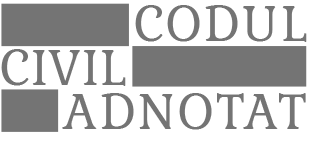Article 48. The Owner’s Obligation to Pay the Contribution Share
(1) An owner has to pay its contribution share to the association, which constitutes the corresponding amount of the association’s expenses allocated to the unit, provided that they are incurred by the association according to paragraph (3). It is prohibited for the association to claim from an owner any payment, under any designation, which does not satisfy the requirements of this paragraph.
(2) If the unit is in the possession of a person other than the owner, such possessor bears joint responsibility with the owner for the payment to the association of the contribution share, but only in relation to the obligations due during the period of possession.
(3) The association’s expenses are borne by the association based on the general meeting’s resolution or an express provision of this law. They specifically include:
a) expenses related to the remuneration of the association’s bodies and salary payments;
b) expenses under the management contract concluded by the association with the manager;
c) expenses related to the operation, repair, or maintenance of the common parts;
d) legal expenses borne by the association under Article 44 paragraph (7);
e) expenses for the reimbursement by the association of a repayable financing (loan, credit, leasing, etc.) contracted by the association based on the general meeting’s resolution;
f) expenses related to intermediated services to the extent that they should not be borne directly by the consumer under Article 49.
(4) The association’s expenses, depending on the calculation method and the criteria for allocation to units, are as follows:
a) share-based expenses;
b) expenses per number of persons living or conducting activities in units;
c) individual consumption expenses;
d) beneficiary expenses, related to individual services of the owners, but financially managed through the association;
e) technical consumer expenses;
f) other types of expenses.
(5) The association has to comply with normative acts that govern the allocation of the association’s expenses to the owners.
(6) A general meeting’s resolution that violates the allocation method established by this law or other normative acts is subject to relative nullity according to Article 42. In case if the legal action is admitted, the court rectifies, so as to be in accordance with the law, the general meeting’s resolution in the part relating to the allocation of expenses, with retrospective effect from the date of adoption, but only in respect to the owners who initiated the legal action or joined the legal action. During the preparation phase of the case for trial, the court requires the association’s administrator to inform each owner about the possibility of joining the legal action.
(7) Even if the right to the annulment action provided by paragraph (6) is time-barred, an owner may always bring a legal action against the association for rectification of the allocation of expenses in respect to itself. The judgment admitting such action rectifies the allocation with effect from the date on which the legal action was introduced unless it provides for a later date.
(8) Unless under this law, applicable normative acts, contracts concluded by the association with suppliers, or from the nature of the expense another manner of allocation applies, an expense is allocated among units proportionally to their share. The system of allocation of votes at a general meeting established under Article 38 cannot affect the criteria for allocating expenses among condominium owners.
(9) Non-use or refusal to use the common parts does not constitute a basis to fully or partially exempt an owner from the expenses to which it is bound under this law.
(10) The association’s collections in the form of the contribution share or other payments by the owners covering the association’s expenses or as damages for loss caused to the association are not subject to taxation in any form.
